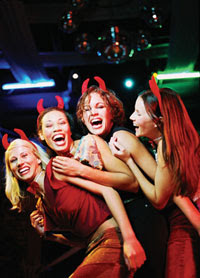
We have received several enquiries from students who asked for help in understanding the new licensing legislation in England and Wales.
Our simple explanation is as follows:
A Personal Licence is required by an individual in order to sell or authorise the sale of alcohol. This is granted to the individual (not to the business) and therefore ‘travels’ with them if they move on. The Personal Licence relates only to the supply of alcohol under a Premises Licence. It is valid for 10 years and can be renewed for further periods of 10 years.
A Premises Licence is compulsory for licensable activities (i.e. the sale of alcohol) to be undertaken by an outlet. This may be held by an individual (e.g. the owner or lessee) or a company (e.g. Pub Management Company).
The Designated Premises Supervisor (DPS) is a person nominated to be in day-to-day control of the premises and the single point of accountability for any problems which may occur on the premises. This is a key change to the Licensing Act, as every outlet must have a single DPS who is also the holder of a Personal License. Any premises selling alcohol without a DPS will be in breach of licensing law.
Licensing Objectives:
- The prevention of crime and disorder
- Public safety
- The prevention of public nuisance
- The protection of children from harm
We hope this is helpful as an introductory guide.




